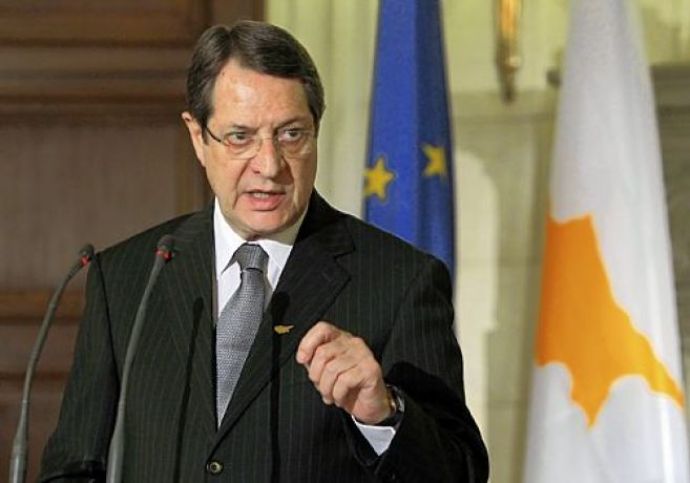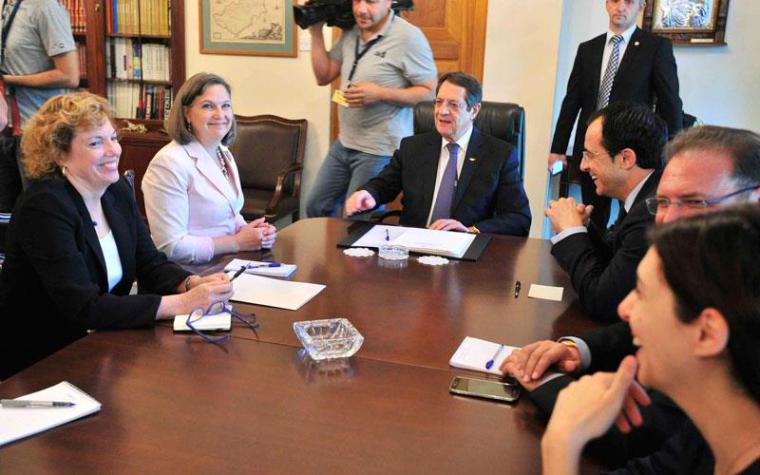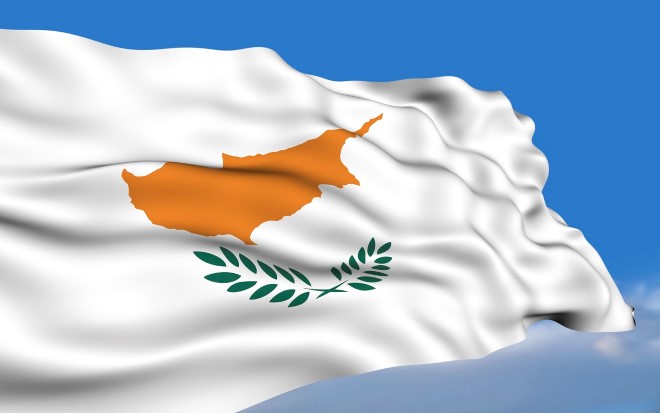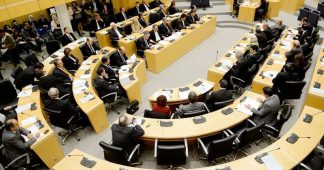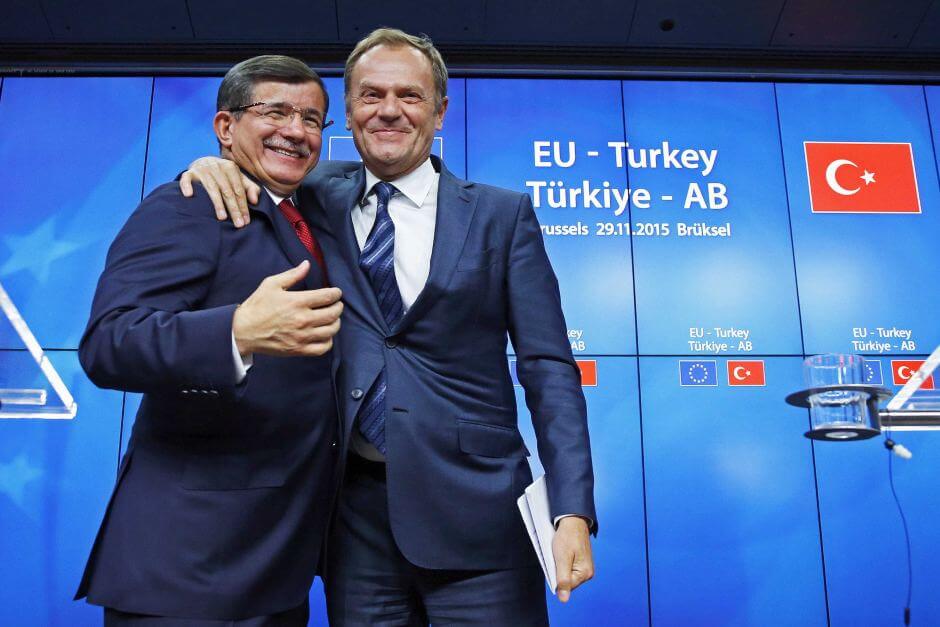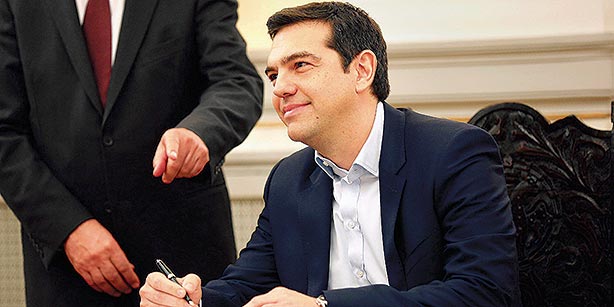To keep Russia out, Nuland wants President Anastasiades to accept Turkish forces in Cyprus under the NATO flag
By John Helmer, Moscow
The US is intensifying the pressure on Cyprus to accept a secret NATO plan to keep Turkish forces on the island.
Victoria Nuland, the State Department official in charge of regime change in Russia and Ukraine, met for talks last week with the President of Cyprus, Nicos Anastasiades, and with Turkish Cypriot figures. The State Department and US Embassy in Nicosia have kept silent on what was said. A well-informed Cypriot source reports Nuland “was in Cyprus to pre-empt any likelihood of future deepening in relations with Russia. Anastasiades may not want to, but he may have no other option.” A second Cypriot political source said: “[Nuland] will try to blackmail him. I’m not sure how he will react.”
Andros Kyprianou, head of AKEL, the Cyprus Communist Party running strongly against Anastasiades’s party in next month’s parliamentary election, issued an unusual warning against the Nuland plan. “For us”, Kyprianou (right) said, there is only one acceptable outcome to negotiations between the Greek and Turkish communities for the reunification of the island. This is a “solution that ends the occupation and colonization, restoring the sovereignty, independence, territorial integrity and unity of the Republic, based on UN resolutions, the High Level Agreements, International and European Law. The solution is to demilitarize Cyprus and excludes any guarantee and intervention rights in the internal affairs of the country by foreign forces.”
The day before Nuland’s arrival, Anastasiades hinted that he favours a military plan so long as it has European government backing. The Cyprus government, Anastasiades said of the communal settlement negotiations, they are “proceeding in some partnerships not excluding defense cooperation, and it is expected that [there will be a] positive contribution of Britain in resolving the Cyprus problem.”
British forces already occupy extensive military bases on Cyprus. Over the years these have been used for signals intelligence and attack operations against Egypt, Libya, Lebanon, Syria, and Iraq. The UK protectorate was one of the terms the Cypriots accepted for an end to their fight to liberate the island from British occupation during the 1950s. The 1960 “treaty of guarantee” preserved the British bases. It provided for Greece and Turkey also to “guarantee the independence, territorial integrity, and security of the Republic of Cyprus.”
After its attack and military occupation of the north in 1974, Turkey has insisted on keeping its forces on the island as a security “guarantee”, and refuses to comply with United Nations (UN) resolutions ordering their withdrawal.
US military commanders and political leaders have never advocated Turkish withdrawal from the island, or compliance with the UN resolutions. Instead, they have recommended incorporating both parts of Cyprus into the North Atlantic Treaty Organization (NATO). The political and military commands in Ankara have been reluctant to accept a NATO solution for Cyprus because they object to what they regard as “dilution” of their army on the island. The Nuland plan is the latest attempt to give Ankara what it wants, and override Greek Cypriot objections. Nuland has also told Anastasiades she wants to accelerate agreement on the terms of settlement before the US presidential election in November.
Anastasiades has already declared himself in favour of joining NATO by signing the preliminary Partnership for Peace programme, but AKEL has been able to block it. For the time being, Cyprus is not a NATO member, and cannot accept another NATO base on its territory. “How can Nuland now push through a Turkish base on the island”, a well-known Cypriot strategist asks – “that isn’t a Turkish base and isn’t a NATO base either, but meets Ankara’s demand for a military ‘guarantee’, and will be accepted by Anastasiades?”
The US Embassy issued no press release after the talks, and neither did Anastasiades. The local newspaper supporting Anastasiades and his Democratic Rally(DISY) party, the Cyprus Mail, headlined a report on their meeting: “Nuland expresses US support for Cyprus peace process”. Promises of US Government cash and US investment in Cyprus as the financial reward for Anastasiades’ agreement was highlighted, the military plan downplayed. “’We also noted that US investment in Cyprus is up sevenfold over the last two years’”, the newspaper quoted Nuland as saying. “There was a lot of excitement in energy about what is happening here. Nuland said that they also talked about security relations and regional relations.” Other pro-American and pro-NATO newspapers in Cyprus declared that if Anastasiades will agree to the deal Nuland has put on the table, Cypriots are “awaiting the dollars of the solution.”
The Turkish regime in the north says it is counting on a parallel payoff. At Nuland’s Turkish talks there was a UN representative, Lisa Buttenheim. Buttenheim, an American, has served as a UN official in Jerusalem, Kosovo, and Belgrade.
Buttenheim (below, left) is not the only UN official engaged in the Cyprus negotiations in favour of a NATO “guarantee” of Cyprus. A presidential-level Cypriot source says Espen Barth Eide (right), Buttenheim’s superior and the Special Representative of the UN Secretary-General on Cyprus, “is working on NATO guarantee through his party comrade and childhood friend, the current Norwegian Secretary-General of NATO.” Barth Eide is a former Norwegian defence minister and foreign minister, whose career has been advanced by former party leader and former prime minister Jens Stoltenberg. Stoltenberg became NATO’s Secretary-General in October 2014.
A US Embassy cable from Oslo of 2008, published by Wikileaks, has reported Barth Eide as “a skilled and subtle interagency player who is largely pro-U.S…On several important issues Barth Eide has been helpful, such as missile defense (where he helped prevent a Norwegian veto of NATO plans)…[he] also takes pains to stress NATO as the cornerstone of GON [Government of Norway] security policy and the importance of the Norwegian-U.S. relationship.”.
The State Department has provided no clarification of Nuland’s talks with Anastasiades; it has repeated its endorsement of Turkey’s value to NATO. On April 20, State’s spokesman said: “I would only say that – I’d only repeat what I said before, and that’s that we value our relationship with Turkey. We certainly value our alliance with them through NATO.”
For weeks now in Moscow, there have been public hints that Nuland has resuscitated the scheme for withdrawing Turkish forces under the Turkish flag, then returning them under a NATO flag. In Nicosia in December, Foreign Minister Sergei Lavrov warned that such a scheme would be unacceptable to Russia. “The sides should reach agreements that would provide these security guarantees on a fundamentally new basis,” Lavrov said, “which will be acceptable to both Cypriot communities…This role should be primarily played by the UN Security Council.” For more details, read this.
In February, Lavrov’s spokesman at the ministry in Moscow attacked statements by Turkish President Recep Tayyip Erdogan for his “calls on the Cypriot Turks to take a tough, uncompromising stance in the ongoing intercommunal talks in Cyprus, including on territorial delimitation, a very sensitive issue. This is in stark contrast to Ankara’s statements on its commitment to facilitating a peaceful settlement on the island in the near future. It is obvious that by addressing such calls to one of the parties to the inter-Cypriot dialogue, Turkey’s leaders are rudely interfering in the negotiation process with a view of promoting their own interests.”
On April 5, just before Nuland’s arrival in Nicosia, senior Russian and Cypriot officials, Deputy Foreign Minister Alexei Meshkov (below, left) and the Permanent Secretary of the Cyprus Foreign Ministry, Alexandros Zenon (right), met in Moscow.
Their communique said that “during an exchange of views on the Cyprus settlement, the Russian side reiterated its commitment to the efforts made in the framework of the continuing intra-Cypriot talks under the UN aegis to promote a fair and lasting solution on the basis of the relevant UN Security Council resolutions, a solution that would meet the interests of both Cypriot communities and stem from their voluntary consent.”
As for the terms to be agreed, Moscow has added: “We oppose any attempts at imposing on the participants of the intra-Cypriot negotiations any formulas of settlement, artificial negotiating schedules, and arbitration.” That’s three strikes in a row — one at NATO; one at Nuland; and one at Barth Eide.
On April 15, the Foreign Ministry added an unusually explicit criticism of Turkish military deployments “ in Northern Cyprus while Washington does not object.”
In the Cyprus opinion polls ahead of the May 22 election, Anastasiades’ DISY party has been losing ground to AKEL, and also to the small nationalist parties.
Anastasiades has been forced into publicly defending himself and his associates from widely published, widely believed allegations of corruptly protecting their wealth when, in return for the European Union’s bailout of the Cyprus banks, Anastasiades agreed to the “haircut” – the confiscation of Cypriot depositors’ bank accounts on March 25, 2013. Anastasiades has also been linked to extortion by a former deputy attorney-general now on trial for abuse of power; and to privatization scams.
The president told a press conference of selected reporters on April 18 that he and his government have had “zero tolerance” for official corruption.
He claimed his administration had been aiming particularly at “politically exposed persons [PEPs] by giving control to approved auditors for disclosure of their property declarations.” For more details on the international rules for PEPs, read this.
One of the leading investigative media in Cyprus, Second Reading (Δέφτερη Ανάγνωση), has recently reported on the involvement of Anastasiades, his law partner Theofanis Philippou, and their Imperium management group in transactions with a well-known PEP from Russia, Leonid Lebedev. He is now a fugitive from Russian charges of grand larceny and fraud. In 2011 the Anastasiades law firm helped Lebedev obtain Cyprus citizenship, which Philippou later concealed in a Cyprus court proceeding against Lebedev by a German bank. The Anastasiades law firm and Imperium have also set up offshore company schemes for Lebedev, and a Cyprus trust for moving untaxed cash out of Cyprus into US banks.
Lebedev has introduced his offshore business record into court cases in London and in New York, where he is claiming he is owed $2 billion for oil company shares from Victor Vekselberg and Len Blavatnik, former shareholders in the TNK-BP oil company. They say they bought Lebedev out for $600 million between 2005 and 2006. Tracing that money is now crucial to the outcome of the New York Supreme Court case. For background on the court deliberations so far, read the backfile.
Last week, lawyers for Vekselberg and Blavatnik asked Supreme Court judge Salliann Scarpulla to make an official request to the High Court of Ireland so that they can subpoena witnesses and obtain documents revealing — they have told the court — that Lebedev and his associates used a Dublin front company, Coral Petroleum, to take, then hide the $600 million, after the payoff from Vekselberg and Blavatnik.
According to the publicly accessible court files, if the New York judge agrees to issue her request, and the Irish court accepts it, then the “owner, director, employee and/or agent” of Coral Petroleum and its accountant in Dublin, Roberts Nathan, will be ordered to reveal all “communications between Coral and Lebedev (and/or his agents and representatives.” Since 2011 the principal agents and representatives at Coral Petroleum have been Philippou, the Anastasiades law firm, and their Imperium Group.
So will the New York and Dublin courts identify Anastasiades and Philippou as the key witnesses in Lebedev’s $2 billion claim? And is there evidence of Anastasiades’ personal involvement in Lebedev’s financial transactions through Cyprus which may expose him to the same test of transparency and propriety he claimed publicly on April 18 to apply to other officials in his government?
On April 18, Second Reading reported on the Lebedev case, and published several questions for Anastasiades to answer: “According to many recent Cyprus press reports, you and your partner, Theofanis Philippou, were in charge of the Anastasiades law firm and the associated Imperium group of companies which arranged the grant of Cyprus citizenship and passport to Lebedev, when he was a Politically Exposed Person according to the Cyprus money-laundering rules? Are you aware of the criminal offences in Cyprus of Lebedev and his Cyprus lawyer, Mr Philippou, your law partner, including perjury in the Cyprus courts; violation of the Aliens & Immigration Law and regulations; concealment of the proceeds of crime in violation of the Central Bank regulations on admitting Politically Exposed Persons (PEPs) to Cyprus; and money-laundering on a billion-dollar scale?” So far the president hasn’t replied.
Does the evidence of the Lebedev case provide opportunity for US officials like Nuland to pressure Anastasiades with threats of a criminal investigation of the Lebedev case evidence by US prosecutors?
A Cypriot analyst following Anastasiades closely says: “you can see Anastasiades agreeing to Nuland’s plan for camouflaging the Turkish forces in northern Cyprus as a NATO partnership for peace. But don’t forget that any kind of deal will surface, and something like that is a non-starter among people, even some of his own supporters. In secret he can do one thing, and say another thing in public. The difference between this and the haircut [of March 2013] is that with the Eurogroup Anastasiades was making the final decision. But here [for the inter-communal settlement] it is the entire population. This is a very important difference.”
